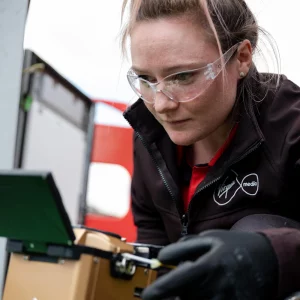Sponsored Links
ISP TalkTalk Mocks ASA by Reinstating Banned UK Safest Broadband Claim
Posted: 06th Jan, 2012 By: MarkJ

 Budget Internet and phone provider TalkTalk appears to have mocked the UK Advertising Standards Authority (ASA) by effectively reintroducing its banned "UK's safest broadband" claim, which the ASA ruled to be "misleading" on Wednesday (detailed here), and instead adjusting it to read "UK's safest broadband connection".
Budget Internet and phone provider TalkTalk appears to have mocked the UK Advertising Standards Authority (ASA) by effectively reintroducing its banned "UK's safest broadband" claim, which the ASA ruled to be "misleading" on Wednesday (detailed here), and instead adjusting it to read "UK's safest broadband connection".Furthermore TalkTalk suggests that the ASA has given them approval for the change, just so long as the "network level" security part is made clear. An article in IT Pro magazine quotes the ISP as saying, "We’ve never been more delighted with a ruling ... we can now say, beyond dispute, that we are the UK’s safest broadband connection. This probably wasn’t the outcome that BT wanted." Two members of the public also complained.
A spokesman for the ASA has since told PC Pro that it categorically denies giving TalkTalk any such permission, which they suggest is more likely to have come from the ASA administered Committee of Advertising Practice (CAP). The ASA warned that CAP approval would not stop them from taking action against the "new" wording.
A Talk Talk Spokesperson boasted:
"We thought the 'UK's safest broadband' was accurate. We are clearly the safest way for families to get online - far and away beyond what BT is doing. We see this as a complete waste of time, as far as the ASA is concerned."
"We thought the 'UK's safest broadband' was accurate. We are clearly the safest way for families to get online - far and away beyond what BT is doing. We see this as a complete waste of time, as far as the ASA is concerned."
The spokesman is said to have admitted that consumers probably wouldn't see the difference between "broadband" and "broadband connection". Meanwhile the ISPs move does an effective job of exposing the ASA's inability to act beyond a basic slap-on-the-wrists approach.
Separately Adam Binks, the commercial director of ISP Vispa UK, informed ISPreview.co.uk that they had, "been offering Network Centric Content Filtered Broadband since 2009 via our WebGuard product - so well done to the ASA for slamming [TalkTalk's] false claims."
In an ideal world TalkTalk would first need to produce an independent comparison that could prove their claims.
Search ISP News
Search ISP Listings
Search ISP Reviews
Latest UK ISP News








Cheap BIG ISPs for 100Mbps+
150,000+ Customers | View More ISPs
Cheapest ISPs for 100Mbps+
Modest Availability | View More ISPs
Latest UK ISP News
Helpful ISP Guides and Tips
Sponsored Links
The Top 15 Category Tags
- FTTP (6802)
- BT (3882)
- Politics (3075)
- Business (2767)
- Openreach (2663)
- Building Digital UK (2512)
- Mobile Broadband (2476)
- FTTC (2142)
- Statistics (2130)
- 4G (2093)
- Virgin Media (2026)
- Ofcom Regulation (1779)
- 5G (1733)
- Fibre Optic (1604)
- Wireless Internet (1595)
Sponsored
Copyright © 1999 to Present - ISPreview.co.uk - All Rights Reserved - Terms , Privacy and Cookie Policy , Links , Website Rules






























